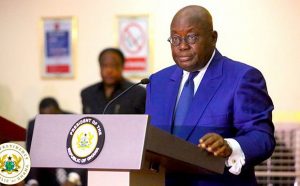In a scathing ruling, five High Court judges in Kenya have blocked a government-backed plan to make fundamental changes to the country’s constitution.
The judgement is arguably the most significant ruling by Kenyan courts since President Uhuru Kenyatta’s election win was nullified in 2017.
The judges said the constitution amendment bill, popularly referred to as the Building Bridges Initiative (BBI), was irregular, illegal and unconstitutional.
President Kenyatta and his political nemesis-turned-ally, Raila Odinga, unveiled the initiative after a truce following the contentious 2017 election, which saw violent clashes around the country.
The two leaders said the initiative, which proposes, among others, the expansion of the executive arm of government, would make the country’s politics more inclusive.
But critics say it is a selfish initiative to reward political dynasties, and that it will lead to a bloated parliament and executive which Kenya – a country already burdened by debt- cannot afford.
The BBI bill had been passed by the National Assembly and the Senate before Thursday’s court ruling and was awaiting a presidential assent, after which Kenyans would have headed to a referendum before next year’s elections.
What did the judges say?
In a four-hour televised ruling, they said President Kenyatta had violated the constitution by initiating a process which ought to have been started by ordinary citizens.
They also ruled that the BBI constitutional committee, a body created by the president, was illegal, adding that Mr Kenyatta had failed the leadership and integrity test.
They warned that the president could be sued in his personal capacity.
The court also said that the five million signatures collected by the BBI taskforce to support the initiative did not make it a citizen-led process.
“A popular initiative to amend the constitution can only be started by the people not by the government,” the judges said.
The declaration creates the grounds for the president to be impeached, but it is unlikely that parliament, which had already passed the bill, would dare to challenge President Kenyatta.
What are the BBI proposals?
The initiative proposes the creation of a prime minister post, at least 70 new constituencies, and an affirmative action clause that could create up to 300 new unelected members of parliament.
President Kenyatta and Mr Odinga argue that the proposed constitutional changes will end the winner-take-all structure of Kenyan politics, which is often followed by deadly violence.
What is the political impact?
The ruling is a huge blow to Mr Kenyatta, who had staked his legacy on passing BBI in a referendum.
Even though the attorney general has indicated that the government would appeal against the ruling, legal observers say a favourable outcome is unlikely.
Mr Kenyatta has had a contentious relationship with the judiciary since the Supreme Court annulled his election four years ago, forcing a rerun. At the time, he warned that he would “fix” the courts.
He has ignored several court orders in the last few years and some have speculated that he might do the same after Thursday’s judgement.
The ruling is also a huge blow to Mr Odinga, a doyen of Kenyan politics for the last four decades.
For a politician who has defied huge odds in the past, the judgement is likely to be his biggest political setback yet, as he had planned to use the BBI wave to launch his fifth presidential run.
But one man who is celebrating the development is Deputy President Willian Ruto, who has been sidelined by Mr Kenyatta since he started working with Mr Odinga.
Mr Ruto, who plans to run for president next year, had opposed the BBI initiative.
He tweeted after the ruling: “There is God in heaven who loves Kenya immeasurably.”







